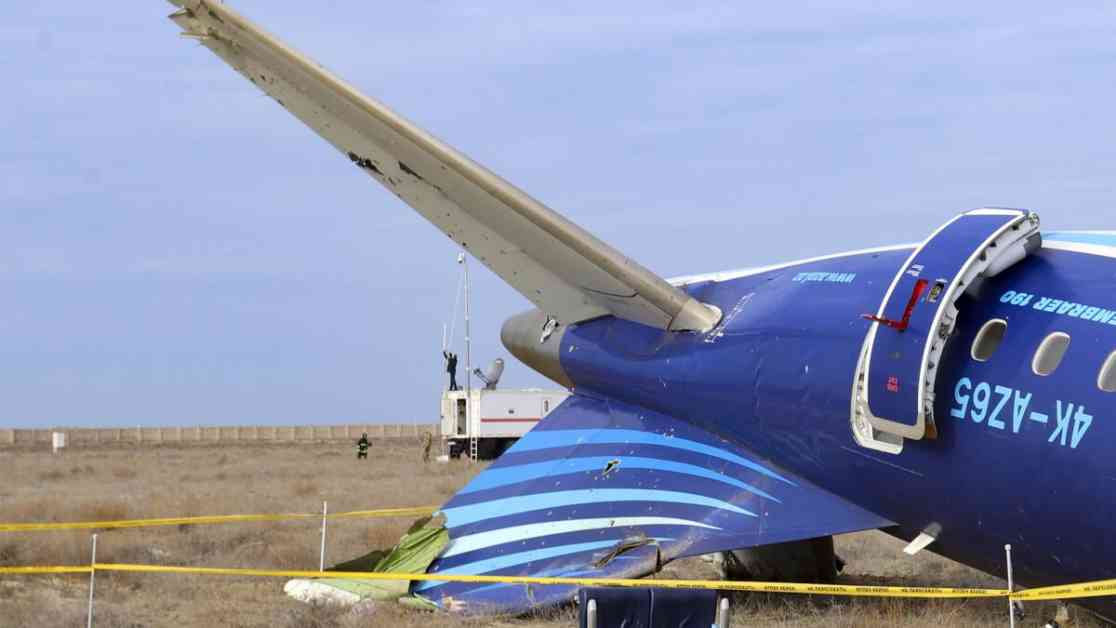Russian Downed Azerbaijan Passenger Plane: Impact of Ukraine War
A tragic event unfolded this week in Kazakhstan when an Azerbaijani passenger jet crashed, leaving 38 people dead and 29 injured. The suspected culprit behind this devastating incident is none other than Russian air defenses, shedding light on a lesser-known aspect of the ongoing war in Ukraine. The conflict, which has already caused widespread destruction and loss of life, has now extended its reach deep into Russia, with unforeseen consequences.
Background of the Incident
The ill-fated flight, originating in Azerbaijan’s capital, Baku, was en route to Chechnya when it crashed in Kazakhstan, across the Caspian Sea. As the plane carrying 67 people attempted to land, it was allegedly targeted by Ukrainian drones aiming for Grozny, the provincial capital of Chechnya. While Russia has not confirmed its involvement, experts suggest that a Russian surface-to-air projectile, possibly from a Pantsir missile system, may have caused the crash by damaging crucial flight systems.
Evidence and Suspicions
Survivor accounts, expert analysis, and cellphone footage taken by passengers paint a grim picture of the final moments before the crash. The aircraft’s tail section bore telltale signs of external impact, likely from an air defense system, leading Azerbaijan Airlines to attribute the incident to “physical and technical interference.” Despite initial claims by Russia of a bird collision and inclement weather diverting the flight path, suspicions quickly arose, with officials hinting at a Russian missile’s involvement.
Geopolitical Ramifications
The repercussions of this tragedy extend beyond the loss of innocent lives, raising questions about accountability and international relations. While Russia has a history of evading responsibility for similar incidents, Azerbaijan’s demand for answers underscores the need for transparency and justice. The escalating conflict between Ukraine and Russia, marked by drone attacks and missile strikes, poses a threat to regional stability and global security.
As we grapple with the aftermath of this devastating event, let us remember the faces of those who perished and the families left behind. Each life lost is a poignant reminder of the human cost of war and conflict. The international community must come together to prevent such tragedies in the future and ensure accountability for those responsible. In times of darkness, it is our collective humanity that shines brightest, offering hope for a more peaceful world for generations to come.



























